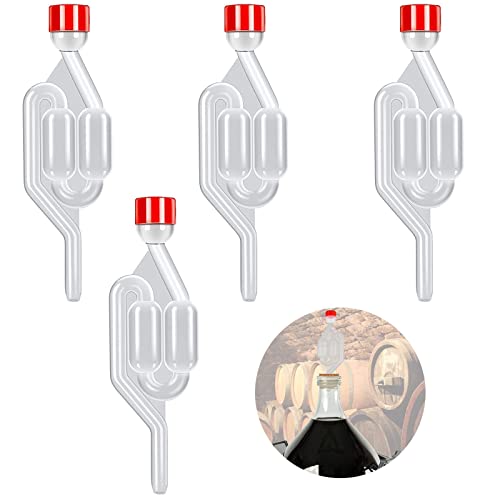AG22 Split batch, no boil
Experiment day.
I have wanted to experiment with a split batch for a while. Really, I wanted to do a Saison and Lager split batch, but not having brewed either before, I thought I'd stick with yeast that I've used before.
For a while I've also wanted to try a no-boil, so thought I'd be brave and do both in one hit.
I bleach cleaned, rinsed and StarSan-ed 4 demijohns a couple of days ago, foil-capped the tops and set aside.
Yesterday I decided on a mix of grains that sits on the border of a few styles. A Blond Ale, which could also be Bavarian Lager. A fairly simple grain bill that would let the differences in yeast and hops be detectable.
16L batch
19.75L water treated with campden and water adjustments.
3.00kg Pale 2-row malt
0.23kg Munich malt (15EBC)
0.20kg Wheat malt
Hops also needed to be middle of the road. I decided originally on Magnum and Styrian Goldings, but on checking the freezer found a few odds and ends needing using up.
5g Magnum (10.5%) @ 30min
17g Northern Brewer (8.8%) @ 30min
5g EKG (5.1%) @ 10min
5g Saaz (3.6%) @ 10min
5g EKG (5.1%) @ 5min
7g Saaz (3.6%) @ 5min
Mashed in with 10L of treated water, 5.3pH after 5mins. Stirred every 20mins. Mashed for a total of 60 mins @ 66°C.
Meanwhile I took 3L of the hot water and brought to the boil to use for a hop tea. Added hops at intervals shown above, before adding another 2L of 40°C treated water to drop temperature to 73°C and let the hop tea sit low enough to avoid any additional bittering.
Batch Sparged with remaining 4.75L of water at 75°C, before adding all wort and hop tea and raised temperature to 75°C for 20mins. Sanitised the immersion chiller and added with half a protofloc tablet (for what good it will do) at 10min.
Chilled to 19°C before decanting a very soupy wort equally between 4 labelled demijohns. I fear some got more trub than others!
I tried to let the tub settle out in the kettle but it wouldn't as there was too much protein in suspension without a boil to get a hot break. I did achieve some sort of cold break around 30°C while chilling.
Experiment 1:
~50g Nottingham yeast slurry to ferment at 15°C
Experiment 2:
~2.5g CML Kölsch dried yeast to ferment at 15°C
Experiment 3:
~50g Nottingham yeast slurry to ferment at 20°C
Experiment 4:
~Built up S04 starter to ferment at 20°C
When these have all fermented out, I'll be dry hopping with Saaz or Tettnang for the two lower temperature experiments and Fuggles/EKG for the two higher temperature batches.
Here they are tucked up with temperature control in the fridge and ferm cupboard.
Wort was at SG of 1.048, rather than intended 1.051, so efficiency took a hit with the small volume batch sparge and no boil. Hoping this gives some interesting results!















![BREWING THERMOMETER STICKERS ACCURATELY MONITOR FERMENTING BEER & WINE LIQUID TEMPERATURES 5PCS HOME BREW SPIRITS WINE LCD ADHESIVE [US]](https://m.media-amazon.com/images/I/311DDjo2X3L._SL500_.jpg)














































